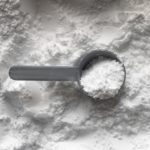Weightlifting supplements have become increasingly popular among athletes and fitness enthusiasts looking to optimize their training and achieve their fitness goals. While a well-rounded diet should be the foundation of any nutrition plan, supplements can play a supportive role in providing specific nutrients that may be challenging to obtain solely through food. In this blog post, we will explore the effectiveness of various weightlifting supplements and discuss the top 10 supplements commonly used by weightlifters. By understanding what works and what doesn’t, you can make informed decisions about incorporating supplements into your weightlifting routine.
What works
- Whey Protein
Whey protein is a popular and widely researched supplement that provides a convenient source of high-quality protein. It contains all the essential amino acids necessary for muscle repair, recovery, and growth. Whey protein is quickly absorbed by the body, making it ideal for post-workout consumption. It can help improve muscle protein synthesis, enhance recovery, and support muscle gains.
- Creatine
Creatine is a naturally occurring compound that enhances the production of adenosine triphosphate (ATP), the primary fuel source for muscle contractions. It is one of the most extensively studied and effective supplements for improving strength and power in weightlifting. Creatine supplementation can increase muscle mass, enhance muscular strength, and improve performance during high-intensity, short-duration activities.
- Branched-Chain Amino Acids (BCAAs)
BCAAs, including leucine, isoleucine, and valine, are essential amino acids that play a crucial role in muscle protein synthesis and recovery. They can be particularly beneficial during prolonged workouts or when training in a fasted state. BCAA supplementation may help reduce muscle breakdown, delay fatigue, and support muscle growth and recovery.
- Beta-Alanine
Beta-alanine is an amino acid that combines with histidine to form carnosine, a compound that helps buffer acid buildup in muscles during high-intensity exercise. By increasing muscle carnosine levels, beta-alanine supplementation can delay muscle fatigue, improve muscular endurance, and enhance performance during intense weightlifting sessions.
- Caffeine
Caffeine is a stimulant that can provide a temporary energy boost and improve focus and alertness. It is known to enhance strength and power, reduce perceived exertion, and delay fatigue. Caffeine supplementation can be beneficial when taken before workouts or competitions, but individual tolerance and sensitivity should be considered.
- Fish Oil
Fish oil is rich in omega-3 fatty acids, specifically EPA and DHA, which have anti-inflammatory properties and support overall health. Omega-3 supplementation may help reduce exercise-induced inflammation, enhance joint health, and promote cardiovascular well-being. While not directly related to muscle gains, fish oil can support overall recovery and reduce exercise-induced oxidative stress.
- Vitamin D
Vitamin D is essential for bone health, immune function, and muscle strength. Weightlifters often have increased vitamin D requirements due to their higher training loads. Adequate vitamin D levels can help optimize muscle function, enhance strength, and support bone health. Supplementation may be necessary, especially for individuals with limited sun exposure or low dietary intake.
- L-Carnitine
L-Carnitine is an amino acid involved in energy metabolism and the transport of fatty acids into the mitochondria, where they are used as a fuel source. It may enhance fat oxidation, improve exercise performance, and support recovery. However, the benefits of L-Carnitine supplementation may vary depending on individual needs and training goals.
- Nitric Oxide Boosters
Nitric oxide (NO) boosters, such as arginine and citrulline, are commonly used to enhance blood flow and promote vasodilation. They are believed to improve nutrient and oxygen delivery to muscles, leading to enhanced performance and muscle pumps. While some studies suggest potential benefits, the effects of NO boosters can vary among individuals.
- Glutamine
Glutamine is an amino acid that plays a vital role in muscle protein synthesis, immune function, and gut health. While it is naturally produced by the body, intense exercise can deplete glutamine levels. Supplementation may support immune function, reduce muscle breakdown, and enhance recovery. However, the benefits of glutamine supplementation may be more pronounced in specific populations, such as endurance athletes or those with compromised immune systems.
What may not work
While there are numerous weightlifting supplements available on the market, it’s important to note that not all of them have been scientifically proven to be effective. Here are some weightlifting supplements that have limited or no evidence supporting their efficacy:
Testosterone Boosters:
Testosterone is a hormone associated with muscle growth and strength. However, many over-the-counter testosterone boosters claim to enhance muscle gains without sufficient scientific evidence. Some common ingredients found in these supplements, such as tribulus terrestris or D-aspartic acid, have shown inconsistent results in studies.
HMB (Beta-Hydroxy Beta-Methylbutyrate):
HMB is often marketed as a supplement that can enhance muscle growth and prevent muscle breakdown. While some studies suggest potential benefits in specific populations (e.g., untrained individuals or older adults), overall evidence for its effectiveness in experienced weightlifters is limited.
Testosterone Precursors (Prohormones):
Prohormones are compounds that are converted into testosterone or other hormones in the body. However, their use is associated with potential health risks and adverse side effects. These substances are often banned in sports and are not recommended due to safety concerns.
Fat Burners:
Many weightlifting supplements claim to increase fat burning and promote weight loss. However, most fat burners contain stimulants like caffeine or green tea extract, which may provide a temporary boost in energy but have limited direct impact on fat loss. Sustainable and long-term weight loss is best achieved through a combination of proper nutrition, exercise, and lifestyle habits.
Remember, individual responses to supplements can vary, and what may work for one person may not work for another. It’s always advisable to consult with a healthcare professional or a registered dietitian before starting any new supplement regimen. They can provide personalized guidance based on your specific needs, health status, and fitness goals.
Weightlifting supplements can complement a well-balanced diet and support weightlifters in achieving their performance and fitness goals. Whey protein, creatine, BCAAs, beta-alanine, and caffeine are among the most well-researched and effective supplements for weightlifters. However, it’s important to remember that supplements should not replace a healthy diet or proper training. Individual responses to supplements can vary, and it’s essential to considerfactors such as personal goals, training routine, and individual tolerances when deciding to incorporate supplements.
Before starting any supplementation regimen, it’s recommended to consult with a healthcare professional or a registered dietitian to ensure safety and efficacy. They can provide personalized guidance based on your specific needs and help you make informed decisions about which supplements may be beneficial for you.
Remember that supplements are intended to supplement, not replace, a well-rounded diet and a consistent training program. Prioritizing proper nutrition, hydration, rest, and recovery remains fundamental for optimizing weightlifting performance and overall health.



